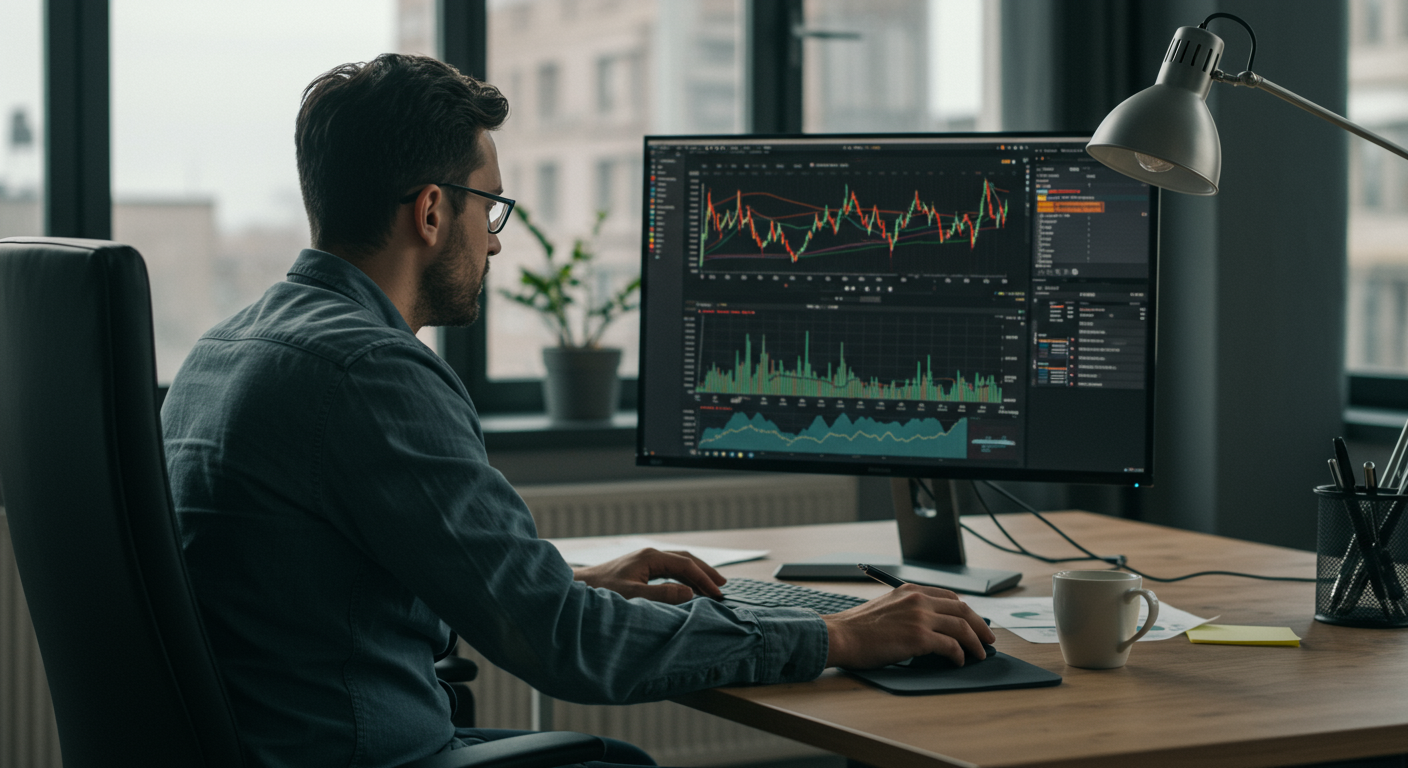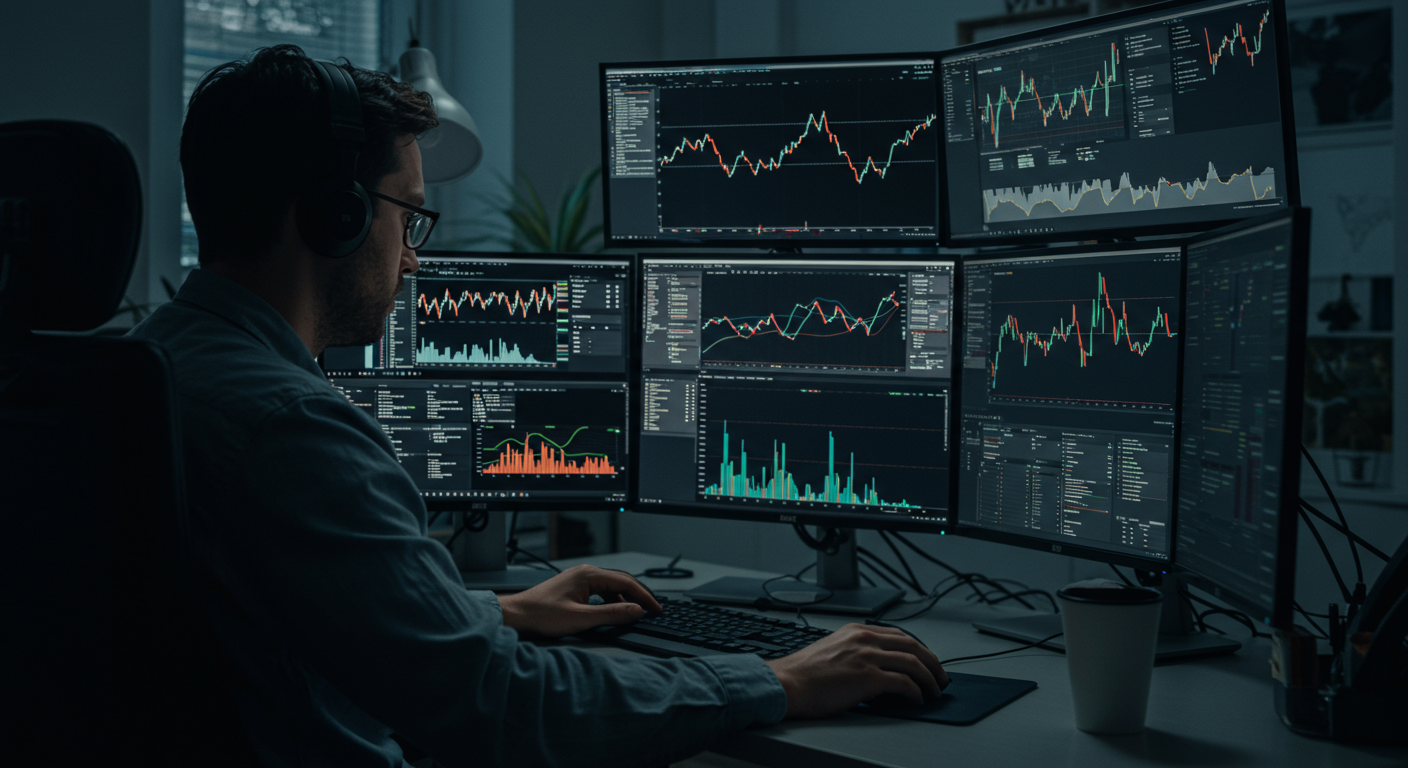This Reddit Post Got Me Thinking...
So, I was scrolling through r/Bitcoin the other day and saw a post titled “Overheating Hasn’t Even Started BTC.” It linked to some on-chain analysis suggesting that, unlike previous points in this bull market, Bitcoin isn't showing the classic signs of overheating. That got me thinking – is this rally sustainable, or are we about to see a major correction? And what does it mean for those of us trading Bitcoin from outside the US, where regulations and market dynamics can be totally different?
It's easy to get caught up in the hype when Bitcoin is making headlines every day. But smart trading means looking beyond the price charts and understanding what's happening under the hood. This post was interesting because it challenged the idea that we're already at the peak of the market cycle. Could there be more upside potential than most people realize? I wanted to dig a little deeper, and share my thoughts and insights with you.
We're not going to just blindly trust some random internet post, of course. We’ll break down the core idea, look at some supporting evidence, and, most importantly, talk about what this all means for how you manage your Bitcoin trades and investments – especially if you're navigating the complexities of international crypto markets.

Decoding the On-Chain Data
Okay, so what does it mean for Bitcoin to be "overheated?" It’s all about on-chain data – metrics derived from the Bitcoin blockchain itself. Think of it as taking the temperature of the network. When the market gets overheated, it usually means a few things are happening. First, you see a surge in new users and transactions. Everyone wants to get in on the action, driving up demand and pushing the price higher. Second, there's often an increase in leverage, meaning people are borrowing money to buy even more Bitcoin. This amplifies both gains and losses, making the market more volatile and prone to sudden crashes. Finally, long-term holders might start taking profits, selling off their Bitcoin to lock in gains. This selling pressure can trigger a cascade effect, leading to a sharp correction.
The Reddit post claimed that these signs of overheating aren't as prevalent as they were in March and December of 2024. That suggests the recent price surge might be driven by more sustainable factors, such as institutional investment or increased adoption by businesses. It also implies that there's still room for the market to grow before it reaches a true peak. Of course, on-chain analysis is just one piece of the puzzle. You also need to consider macroeconomic factors, regulatory developments, and overall market sentiment.
Here's the thing, though: even if the market isn't technically overheated, that doesn't mean it's risk-free. Bitcoin is still a volatile asset, and corrections can happen at any time. It's important to stay grounded and not get carried away by the hype. Always remember to do your own research and manage your risk accordingly. Platforms like Changelly can be useful for beginners getting started with buying and selling Bitcoin. They offer a user-friendly interface and a variety of payment options, making it easy to get your foot in the door. But always remember to do your research before using any platform, and never invest more than you can afford to lose.
What This Actually Means for You: Trade Smarter, Not Harder
So, let's cut through the noise and talk about what this Reddit post actually means for your trading strategy. If the market isn't overheated, it suggests that the current bull run might have more legs. That doesn't mean you should blindly buy Bitcoin and hope for the best. It means you should be strategic about how you approach the market.
For example, consider using a dollar-cost averaging (DCA) strategy. Instead of trying to time the market, you invest a fixed amount of money at regular intervals. This helps to smooth out the volatility and reduce your risk. You could also consider diversifying your portfolio. Don't put all your eggs in one basket. Spread your investments across different cryptocurrencies and asset classes to mitigate your risk. And, of course, always use stop-loss orders to protect your capital. A stop-loss order automatically sells your Bitcoin if the price falls below a certain level. This can help to limit your losses in case of a sudden correction.
But wait, there's more to consider. The crypto market is heavily influenced by news and events. Keep an eye on regulatory developments, technological advancements, and macroeconomic trends. These factors can all impact the price of Bitcoin. Also, don't forget about market sentiment. Pay attention to what people are saying on social media and in online forums. This can give you a sense of the overall mood of the market. However, be careful not to let your emotions cloud your judgment. It's easy to get caught up in the hype, but smart traders make decisions based on logic and analysis, not fear and greed.
The Stuff Nobody Talks About: Risk Management
Look, I'm not trying to scare you, but let's talk about the stuff nobody wants to talk about: risk management. Bitcoin is a high-risk asset, and you need to be aware of the potential downsides before you invest. One of the biggest risks is volatility. The price of Bitcoin can swing wildly in either direction. This means you could lose a significant portion of your investment in a short period of time. Another risk is regulation. Governments around the world are still grappling with how to regulate cryptocurrencies. Changes in regulations could have a major impact on the price of Bitcoin. And, of course, there's always the risk of scams and hacks. The crypto world is full of bad actors who are looking to take advantage of unsuspecting investors.
So, how do you protect yourself? First, only invest what you can afford to lose. Don't put your life savings into Bitcoin. Second, do your research. Understand the risks involved before you invest. Third, use a secure wallet to store your Bitcoin. Choose a wallet that offers two-factor authentication and other security features. Fourth, be wary of scams. If something sounds too good to be true, it probably is. And finally, stay informed. Keep up with the latest news and developments in the crypto world. The more you know, the better equipped you'll be to manage your risk.
If You're Trading from Outside the US: Global Crypto Considerations
Now, let's talk about something that's particularly important for those of us trading Bitcoin from outside the US: international considerations. Depending on where you live, the regulations and tax implications of trading Bitcoin can be very different. In some countries, Bitcoin is completely legal and unregulated. In others, it's subject to strict regulations and high taxes. And in a few countries, it's outright banned.
Before you start trading Bitcoin, it's important to understand the laws and regulations in your country. Check with your local tax authority to find out how Bitcoin is taxed. You may need to pay capital gains tax on any profits you make. Also, be aware of any restrictions on the transfer of funds. Some countries have strict capital controls that limit the amount of money you can send abroad. If you're unsure about anything, it's always a good idea to consult with a local lawyer or financial advisor.
Another important consideration is currency exchange rates. When you buy or sell Bitcoin, you'll need to convert it to your local currency. The exchange rate can fluctuate, which can impact your profits. Keep an eye on the exchange rate and factor it into your trading decisions. Platforms like KuCoin are popular among international traders because they offer a wide range of cryptocurrencies and trading pairs. They also have a robust security system and a user-friendly interface. However, always do your research before using any platform, and make sure it's compliant with the regulations in your country.

Actually Doing This Stuff: A Practical Guide
Okay, so how do you actually put all of this into practice? Let's walk through a step-by-step guide to trading Bitcoin strategically, keeping in mind the points raised by that Reddit post.
- Do Your Research: Don't just jump into the market without understanding what you're doing. Read articles, watch videos, and follow reputable analysts. Get a solid understanding of Bitcoin, blockchain technology, and the crypto market in general.
- Choose a Reputable Exchange: Select an exchange that is secure, reliable, and compliant with regulations in your country. Look for exchanges that offer two-factor authentication, cold storage of funds, and insurance coverage.
- Set Up a Secure Wallet: Don't leave your Bitcoin on the exchange. Transfer it to a secure wallet that you control. There are many different types of wallets to choose from, including hardware wallets, software wallets, and paper wallets. Choose one that meets your needs and security requirements.
- Develop a Trading Strategy: Don't just trade on a whim. Develop a clear trading strategy that outlines your goals, risk tolerance, and investment timeline. Decide how much money you're willing to invest, what types of trades you'll make, and when you'll take profits or cut losses.
- Manage Your Risk: Always use stop-loss orders to protect your capital. Diversify your portfolio to reduce your risk. And never invest more than you can afford to lose.
- Stay Informed: Keep up with the latest news and developments in the crypto market. Follow reputable sources of information and be wary of scams and hype.
My Take on All This: Proceed with Cautious Optimism
So, here's what I think about all this. That Reddit post makes a valid point: the Bitcoin market might not be as overheated as some people believe. That suggests the current bull run could have more room to grow. However, it's important to proceed with cautious optimism. Bitcoin is still a volatile asset, and corrections can happen at any time. Don't get carried away by the hype, and always manage your risk accordingly.
I also think it's important to remember that the crypto market is constantly evolving. New technologies, regulations, and events can all have a major impact on the price of Bitcoin. Stay informed, be adaptable, and be prepared to adjust your strategy as needed. And, of course, always do your own research. Don't rely solely on the opinions of others. Form your own conclusions based on your own analysis.
Maybe I'm wrong. Maybe the market is about to crash. But based on what I'm seeing, I think there's still potential upside for Bitcoin. If you're a long-term investor, now might be a good time to accumulate more Bitcoin. If you're a short-term trader, be prepared for volatility and manage your risk carefully. Whatever you do, remember to stay grounded, stay informed, and stay strategic. Good luck!